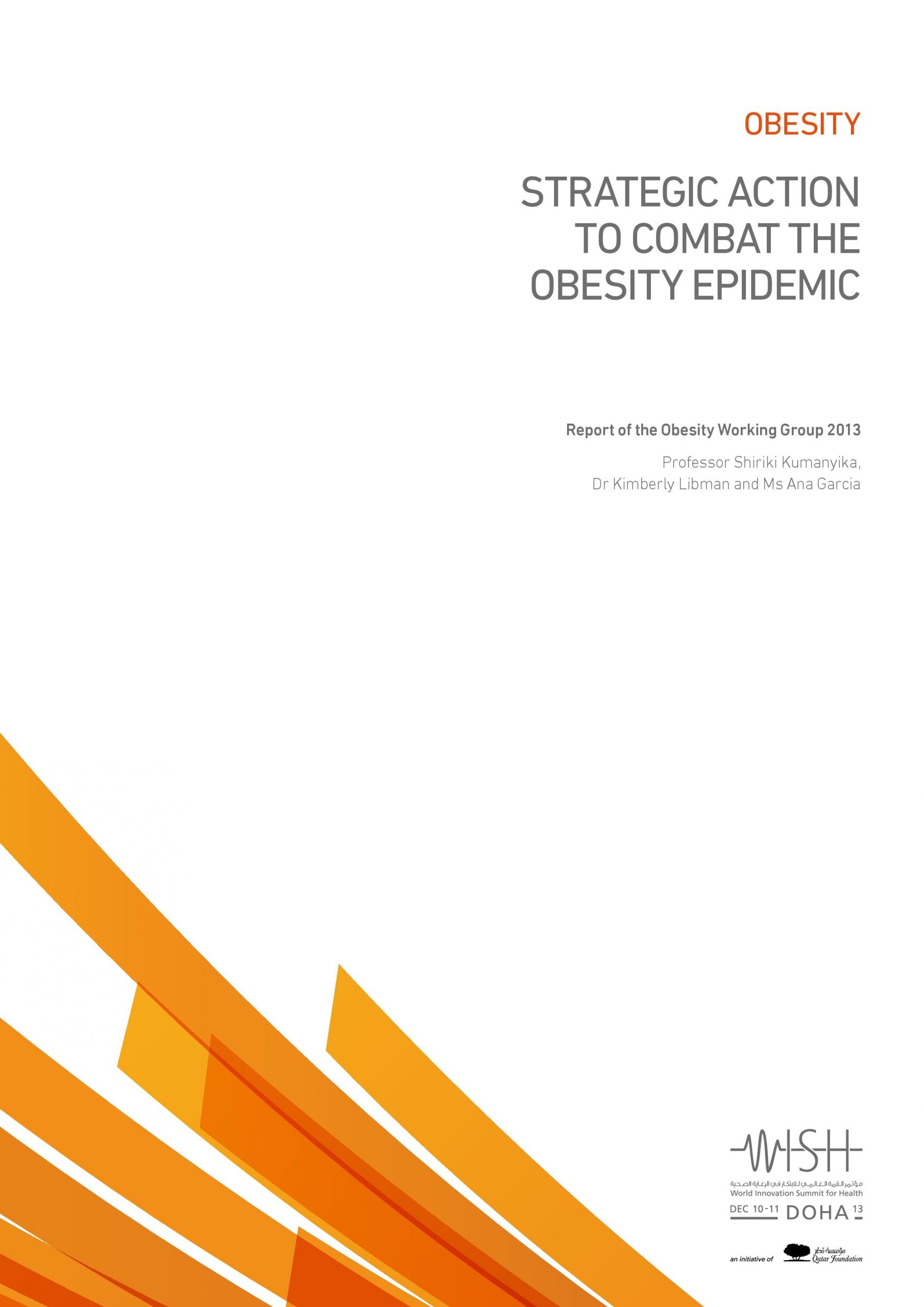Strategic Action to Combat the Obesity Epidemic
Professor Shiriki Kumanyika, Dr Kimberly Libman and Ms Ana Garcia
The report focuses on the underlying complexity of the obesity epidemic by relying on the “whole population” approach that has been brought forth by the Global Action Plan. This framework focuses on both policies and environmental changes that can improve an individual’s ability to sustain a healthy dietary and physical lifestyle. Undertaking thorough qualitative research this report has successful put forth innovations that support these goals.

